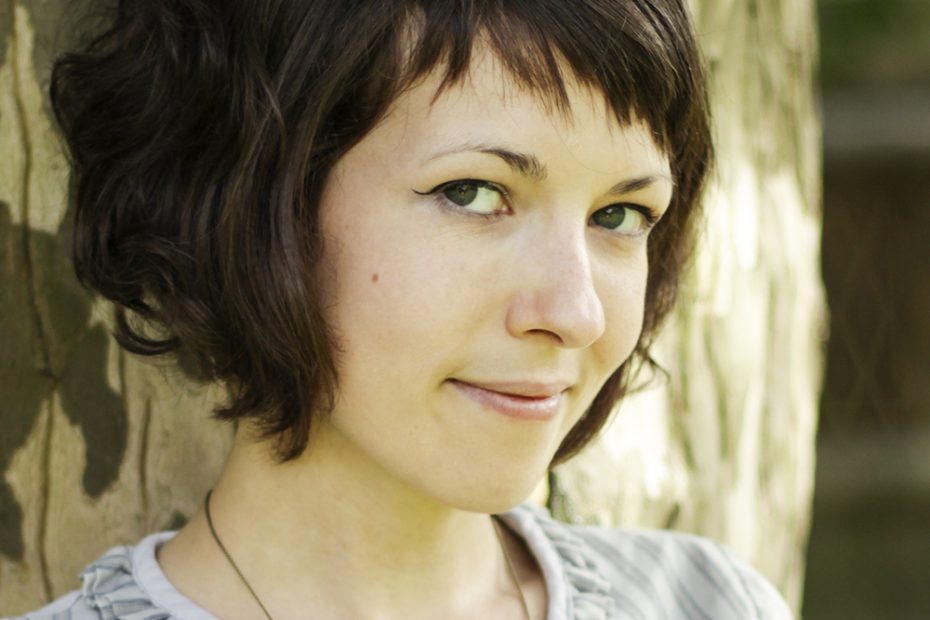Lilia Volodina‘s imagination took her from her Russian home town of Krasnoyarsk, Siberia to upcoming graduate work at Lesley University.
In between, she’s explored the creative pathways of photography, music and other arts, studied at Quincy College and Montserrat College of Art, produced a body of work shown at multiple juried and other exhibitions, and, of course, volunteered time to the PRC and other organizations.
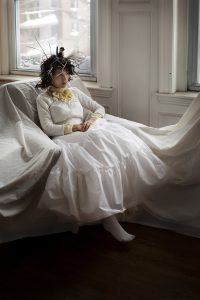
Lilia draws her inspirations from surrealist, magical realist and absurdist artists and writers, psychological research, and her own life experiences. She uses photography, filmmaking and other artistic media as a means of creating her own fictional visual narratives.
“For me, the idea is more important than the medium,” she says.
Where do those ideas come from?
“My imagination has always been running wild. I used to be a real bookworm, reading all the time, and I think that influenced my imagination a lot. I always liked creating my own world with my own characters, and making photographs for that because it’s the most believable medium.”
Like many of us, Lilia describes herself as a work in progress.
“After I graduated Montserrat, I thought of getting a master of fine arts degree. But I became very interested in psychology as well, trying to figure out my life experiences and to understand my own and other people’s motivations. I realized that this quest has always been part of my art and I wanted to pursue that further.
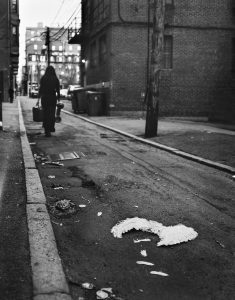
“I found out that there is an Expressive Art Therapy program where you could combine developing your artistic skills with learning more about psychology and mental health counseling, and ultimately learn how to use the arts to help other people who need it. I thought that was a perfect match.”
Lesley University Graduate School of Arts and Social Sciences thought so, too. Lilia will start her graduate studies there this fall in the Clinical Mental Health Counseling/Expressive Arts Therapy program.
How would you describe yourself as a photographer?
I wouldn’t describe myself as a photographer, because I don’t like being put in a box.
On one hand, I am an interdisciplinary artist who uses photography among other media such as filmmaking, animation, illustration, screenprinting, bookmaking and creative writing to tell stories, imaginary or real. On the other, I am also a musician and a percussion mentor in a community brass band.
Recently, I’ve decided to use my artistic and musical skills to become an Expressive Art Therapist, so I hope that one day I can also describe myself as that, too.
All in all, I think that the best word to describe myself would be a “work-in-progress.”
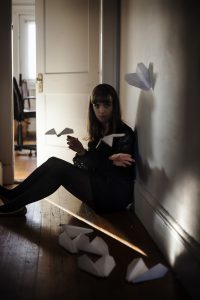
What is the primary focus of your photographic work?
My work (whether photographic or not) is very autobiographical. My life has been quite an adventure, and creating art has been a perfect opportunity to process my life experiences and my feelings about them, and portray them in a surreal or magical way.
At some point I focused on the absurd, because nothing made sense in my life, but that phase has passed, and I’m not sure what my new focus will be. Probably just making art for myself and using it as a self-healing tool, although I am also hoping to figure out how to portray some of the psychological concepts I’ve learned about and my new level of self-awareness through art.
Whose work inspires you?
Apart from my life, I’ve been inspired by writers, painters, animators and photographers. To pick one from each category, I’ll say Daniil Kharms, Salvador Dali, Jan Svankmajer and Duane Michaels.
Do you have a mentor or a muse?
I currently have a snare drum teacher and a therapist. I hope to find a visual art mentor as well at some point, but that doesn’t seem to be as easy outside of school. I’m currently thinking of organizing a group of peer-mentors to exchange ideas with.
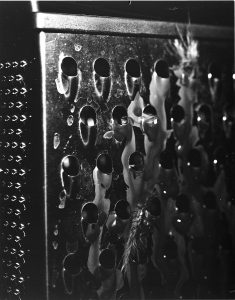
What was the Aha moment that sparked your interest in photography?
For photography, my brother once gifted me his old digital camera. I had no idea what I was doing, so I basically taught myself by trial and error, and it was an exciting process. Once I felt like I was good, I just wanted to keep doing it. Plus I liked the aspect of being able to create a make-belief with my camera. Photography has a power of being perceived as portraying truth, so I liked using that to my advantage.
What advice would you give a budding photographer?
Seek out supportive mentors and peers who will help you go where YOU want to go, instead of pushing you in the direction they see fit. Don’t let yourself be limited by one medium. Don’t let others define who you are.
What was your motivation for joining the PRC?
I wanted to help a volunteer-run arts organization because of the value it brings to the community by bringing people together for the sake of arts. Also, while giving a presentation at my former school, Montserrat, Boston-based artist Caleb Cole mentioned working for the PRC at some point in his career. I thought that if he did it, maybe it’s worth trying.


